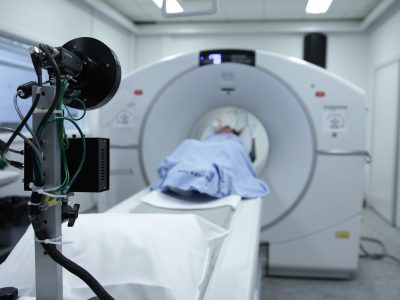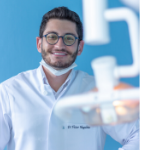How are you holding on? How has the pandemic affected you, your business or your company you are working at?
As you may have felt it, the COVID-19 pandemic has significantly affected the medical device market. Some for the good and some for the worst. It really depends on the medical device and the specific market. But you can’t ignore the fact that the medical device industry was affected and has experienced both ups and downs throughout the crisis. And most likely it will continue to be affected for a while more.
This industry, like many other industries, is facing challenges in different aspects.
In order to contain the spread of the coronavirus, countries around the world have implemented strongest measures in the form of lockdowns and social distancing. With medical professionals focused on treating COVID-19 patients, resources have been diverted away from elective procedures some procedures have been delayed, postponed or cancelled and priorities have changed. Due to that, we have witnessed some changes in this market as some of these device developments are currently put on hold, or on a low flame, until the crisis is over or more controlled.
In this article we will review the different aspects, and we will provide solutions on how to overcome these challenges and how we can come out of this period even stronger.
Let’s have a look at some of the processes that take part in a medical device company that were affected directly due to the COVID-19 pandemic.
New Devices and New Updates
Whether you are in a stage of working on a new medical device product or whether you are updating a current product, you may need to go through the relevant device approvals in order to get it approved by the regulatory bodies.
We have seen a slow pace of new device approvals in the FDA, mostly because the pandemic has largely fixed the FDA’s focus on emergency use authorizations (EUAs), leaving more typical device approvals waiting. This mean that the FDA is not approving many non-coronavirus-related devices, compared to last year. This situation will most likely stretch into 2021.
“Considering how busy the FDA will be with COVID-19 diagnostic testing oversight (not to mention trials for COVID-19 treatments and vaccines), we wouldn’t be surprised to see the pace of new device approvals slow through 2020 and into 2021” according to Debbie Wang, a senior analyst at Morningstar.
What can you do?
Utilize the time to fix all the issues you need in your product, finalize the documentation and tests so when you do apply for the regulatory bodies, the process will run smoothly as much as possible. Don’t replace quantity over quality!

Grants and Funds
Raising money and attracting new funds during the pandemic is tough, but not impossible.
The COVID-19 crisis shouldn’t be in your way if you are looking to raise funds for your business. It is possible. Life goes on and the world needs medical solutions in all aspects.
When coming to search for funds, make sure you have these three characteristics that can attract the investors:
- Sizable market opportunities.
- Products and technologies that address unmet needs in innovative ways.
- Management groups with deep experience, strong management skills, and the ability to build teams.
What can you do?
There are different funding and grant options available out there, either public or private funds. Find the right path for you. This is the time to use your network to search for investors. Don’t be greedy. Try to be flexible, open minded, negotiate, listen to what others have to say and find the ways to get the funds your business needs.
Clinical Trials
Clinical trials are also being affected. Depending on the product, but most medical device products must undergo clinical trials both pre- and post-market before manufacturers can obtain certificates for market approval. Due to the new situation of the COVID-19 pandemic, medical device companies are finding it difficult to make informed decisions about their products, and regulatory obligations in the midst of uncertainty.
You should expect delays in current and planned trials as the pandemic continues to spreads. These delays may occur due to site issues, reduced patient enrollment, patients dropping out of trials, or non-compliance with study protocols.
What can you do?
If a clinical trial is required for your device, continue to work on the preparation for the clinical trials. Have all the paper work and needed approvals ready so once the time is right, you can start with enrollment of patients and kick off the trial.
If a clinical trial isn’t required for your device in order to get an approval, try to move forward without the trial and come back to it when the situation is back to some kind of normality.
In either way, if you can, move forward with what you can, mitigate the risks where needed and change the plan accordingly. As long as you are not put on hold.

Manufacturing and Supply Chain
The biggest challenge in the manufacturing and supply chain is delivering products to end users in a timely manner as well as attending to an uneven demand for products and services.
The COVID-19 pandemic has placed enormous strain on the global supply of medical products, increasing the risk of shortages. Although production across the world and specifically in China has been gradually resuming, there is still a in supply shortages over the short-term period, or even longer. These risks are due primarily to limited operational capacity in China and how resumption of production will be prioritized.
Since this situation will take some time before manufacturers can resume their full operational capacity, it is critical that medical device manufacturers will evaluate and plan for sourcing alternatives.
What can you do?
One option is to switch to domestic manufacturing rather than outsource it to other countries. Yes, it can be expensive and might take longer than usual, but since we don’t know how much longer this crisis will take place, relying solely on outsourcing at this stage can be risky. Although the demand for medical devices has proven to be much higher than what domestic manufacturers can deliver, the focus should be on ramping up the capacity of domestic production to provide the demand.
Sales and Growth
The market is facing a period of short-term negative growth in, which can be attributed to factors such as a decline in the product demand from major end users, limited operations in most of the industries, temporary closure of major end-user facilities, disrupted supply chain, and challenges in terms of providing essential/post-sales services due to the lockdown.
What can you do?
This is the time to seize new opportunities and to think outside the box! Try to see if your product or treatment can be adapted to the new situation and act rather than react. For example, include online and remote solutions that can be used in your selling strategy.
This is the time to change the approach to crisis selling. There are different methods that discuss this strategy, for example: cutting off costs, invest in your prospects and current customers, offer different selling options, etc.
Ok, so now we understand the challenges facing us, but there are also opportunities we can take during this period.
- 1. Expect a large demand for medical devices after lock down. Plan for the day that life will be back for some normality.
2. Although some businesses are closing down due to the crisis, there are new businesses that open up. Find these business and create new selling opportunities.
3. Create new opportunities with collaboration. Maybe you can work more closely with other industry actors and experiment with new ways to reach consumers.
4. Adapt to the situation. Provide online and remote solutions and services.
To summarize, this crisis will be here for a while longer. The medical device industry needs to work closely with customers, patients, regulators, distributors, factories and more.
Think outside the box, be active, don’t let the situation frustrate you. Try to focus on how you can make the most effective contributions to control the spread of the virus and save lives.
Thank you for your time! Was this article helpful for you? I’d love to hear about it!

